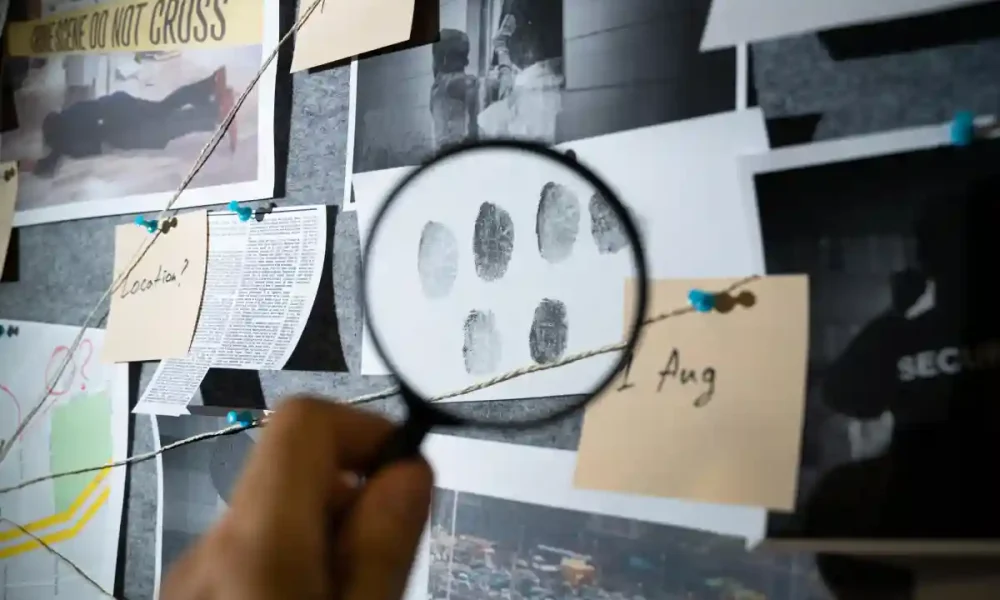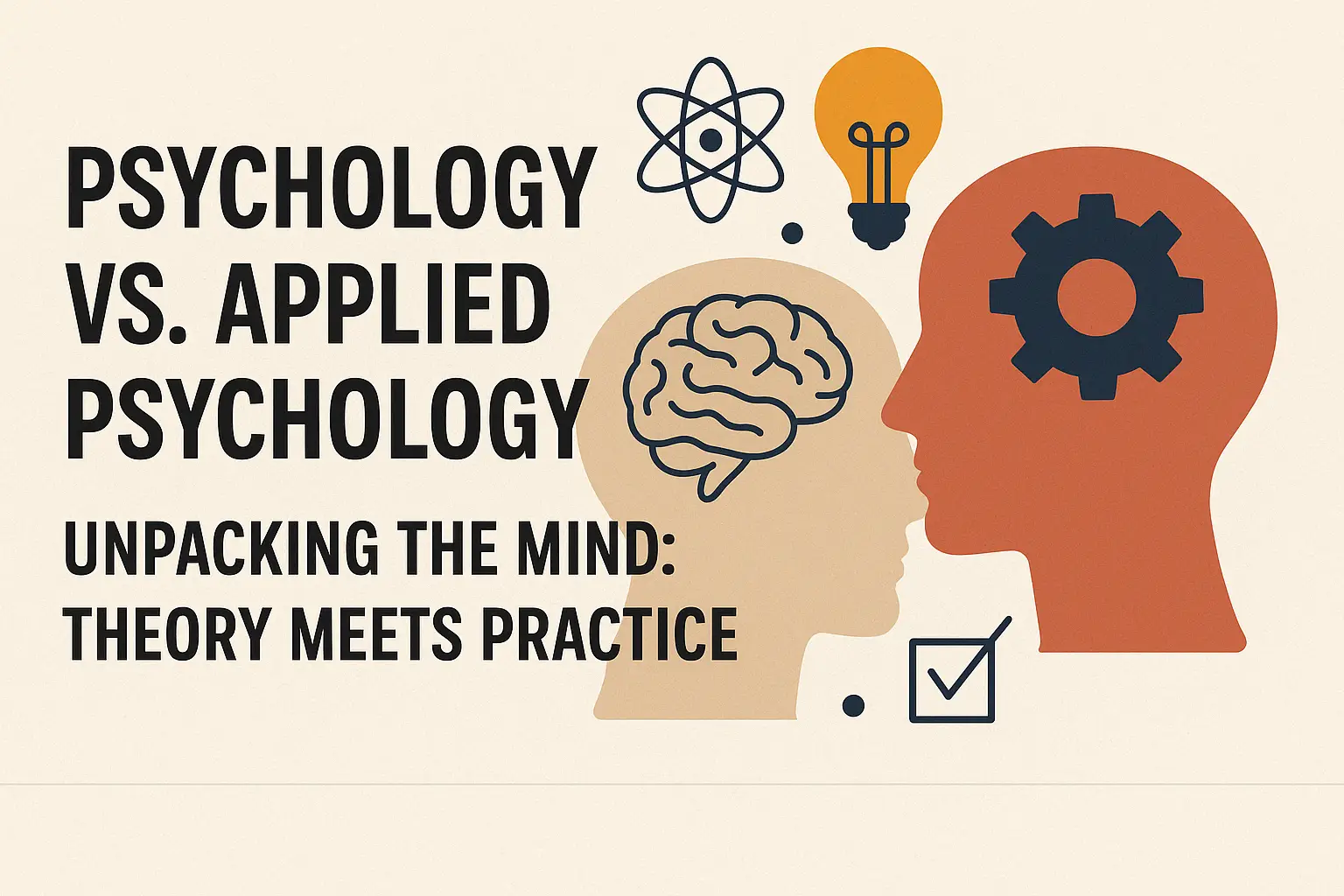Among the many branches of psychology, Forensic Psychology stands out as a fascinating field that explores the intersection of criminal behavior and the law. It involves the psychological investigation of crimes, criminal minds, and civil matters with legal implications. Forensic and investigative psychology uniquely combines principles of criminal psychology and legal studies, applying psychological theories to real-world legal contexts. The insights and findings provided by forensic psychologists often play a crucial role in helping the justice system reach fair and informed verdicts.
What is Forensic Psychology All About?
By putting law and psychology under a single umbrella, Forensic Psychology evaluates legal cases, psychoanalyse criminal offenders, and assesses the competency of defendants to stand trial or evaluate guardians for child custody. The word ‘forensic’ is derived from the Latin word ‘forensis’, which was inspired by the ancient Roman court systems that were referred to as ‘the forum’.
In the 21st century, the practice of forensic and investigative psychology has grown significantly. Putting the law and legal system under the lens of psychology has produced scientifically sound and morally valuable insight, allowing room for every criminal case to be treated separately with sincere scrutiny. Forensic Psychology is a fairly new branch of Psychology that was officially recognised by the American Psychological Association in 2001.
What are the Basic Roles of a Forensic Psychologist?
As a Forensic Psychologist, your job will require you to integrate psychological concepts into legal proceedings. Theoretically, there are usually three types of stakeholders that a forensic psychologist assists: Attorneys, Inmates, and the Police Force. Their approach will be significantly different based on who they are representing.
- Attorneys: When working with attorneys, they can assume the role of a psychological expert, consultant, and witness, evaluating the mental state of the defendant and providing evidence-backed court testimonials.
- Inmates: For every convict serving jail time, a forensic psychologist is appointed, who will be responsible for screening prisoners and determining the risk of violence to others, potential for self-harm, preparing inmates for pardon or parole, and suggesting rehabilitation therapy, individual and group counselling sessions, etc.
- Police Force: The police force needs forensic psychologists for different reasons, like investigating a crime scene, creating criminal profiles, assessing and determining potential suspects and those proven guilty; all from a psychological lens.
Hence, a forensic psychologist is called on by different stakeholders and thus their roles can be diverse as well. They will be working according to what the project demands.
Role of Forensic Psychologist
| Stakeholder | Role of Forensic Psychologist |
| Attorneys | Act as expert witnesses, evaluate defendants’ mental state, assist with jury selection |
| Inmates | Assess risk of violence or self-harm, suggest rehabilitation, prepare for parole |
| Police Force | Profile suspects, investigate crime scenes, provide psychological insights into criminal cases |
Educational Qualifications Required to Become a Forensic Psychologist
To become a Forensic Psychologist, you will need to complete an undergraduate or graduate programme with a degree and skills. These specialised forensic and investigative psychology courses are designed to offer a rare look into criminal minds, investigate the places of crime, and work alongside law firms or the police, and correctional officers. Here is a step-by-step guide to become a Forensic Psychologist:
- There are very few universities that offer a proper Forensic Psychology specialisation; otherwise, students take a combinationof elective courses that features social psychology, criminal justice, criminal behaviour, etc.
- The starting place for understanding criminal psychology is a Bachelor’s degree in psychology or law. The specialisation in forensic psychology can be achieved during a master’s degree.
- After a four-year Bachelor’s degree, the students need to obtain professional experience through apprenticeship or internship at law firm, or under a criminal psychologist.
- The Master’s programme offers a specialisation in criminal psychology, criminal law, and forensic psychology. The one-to-two-year course heavily focuses on developing professional skills and gathering experience on the practical application of psychological analyses on real-life cases alongside industry experts.
- Along with working as a criminal psychologist or a forensic psychologist, getting a P.hD will be really impressive in the portfolio during permanent job interviews.
Becoming a forensic psychologist depends a lot on the application of skills and professional experiences of candidates. From understanding the criminal mind and behaviour to analysing psychological angles on a legal case, 40% of all forensic psychology practitioners are believed to get employment opportunities under the federal, state or government systems.
Educational Path to Become a Forensic Psychologist
| Stage | Details |
| Bachelor’s Degree | Basic psychology with criminal justice, social psychology, or related modules |
| Work Experience | Jobs like correctional officer, probation officer, or legal assistant for practical exposure |
| Master’s Degree | Specialised training in forensic psychology and criminal law with practical casework |
| Optional PhD | Enhances research skills, credibility, and job prospects |
Criminal Minds in Real Life: Careers in Forensic Psychology
As the popularity of true crime increases, a career in Forensic Psychology may seem like a dream to many. Nonetheless, it is a serious job and requires sincere candidates capable of dealing with the police, lawyers, and even hardened criminals. Here are some of the job roles you may end up in as a forensic psychologist:
- Criminal Profiler: Almost a pop culture trope nowadays, a criminal profiler’s primary job is to identify criminal behaviour patterns. By analysing the reports, evidence, crime scenes, witness testimonials, and the convict’s past and present criminal tendencies, they are able to create a profile that closely resembles the criminal’s personality.
- Crime Analyst: A Crime Analyst is typically tasked with gathering forensic information from the scene, reports and testimonials and establishing a trend in criminal activity. They can also use the information to devise crime prevention programmes for communities with a high crime rate.
- Victim Advocate: Victims and survivors of terrible crimes are immediately provided with medical support and psychological support by Advocates who are there to help victims understand their legal rights and organise resources for the victim to process the trauma.
- Expert Witness: With all the evaluation and analysis of the criminal mind, forensic psychologists are often given the unique opportunity to appear in court as an expert witness, reading out testimonials that may help the judge and jury deliver a verdict.
- Criminal Psychologist: As the name suggests, criminal psychologists are called on by law enforcement to psychologically assess convicted criminals about their motive to commit crimes and patterns and tendencies of reoffending.
- Forensic Case Manager: A forensic case manager is tasked with managing convicted youth and adults serving time in prison with a possibility of parole in a few years or decades, and preparing them for a successful life after prison and full integration into society.
The study of forensic and investigative psychology leads to many career pathways, depending on the specialisation of the candidates and the cases they choose to work on. With a degree in forensic psychology, students can conduct research on different cases or become professors and shape the minds of the future generation of forensic psychologists.





